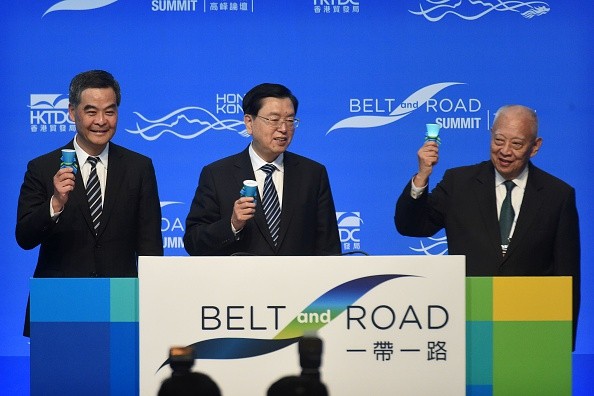China will hold two important summits in 2017, which are the Belt and Road summit and the 9th Brazil, Russia, India, China and South Africa (BRICS) summit.
According to the Xinhua News Agency, the Belt and Road initiative seeks to bring together countries all around the world via overland. Xi Jinping also laid out a five-point proposal regarding this, which includes cooperative programs mapping out a shared development vision, coping with the most pressing global challenges, and building an open world.
Wang Yu, a former Vice Foreign Minister of China, said: "The international cooperation summit forum on the Belt and Road initiative will be a strategic measure to boost the world economy, an important platform to deepen international cooperation and China's innovative practice to implement the concept of win-win cooperation."
There is a breakthrough regarding a multilateral development under the initiative this year, as China, Russia and Mongolia officially signed plans to build an economic corridor.
There is also a steady progress with regard to synergizing the initiative with the Eurasian Economic Union.
Wang Yiwei, a research fellow of international relations at the Renmin University of China, said: "So far, over 100 countries and international organizations have expressed their willingness to support and join the initiative. China has signed cooperation agreements on the initiative with more than 40 countries and international organizations."
BRICS is an association of five major emerging national economies, and its leaders meet annually through formal summits. The 9th BRICS summit is scheduled in Sept. 2017 and will be held in Xiamen, China.
Zhu Jiejin, deputy director with the Center for BRICS Studies at Shanghai's Fudan University, said: "The summit in Xiamen is seen by many as a milestone for BRICS cooperation as its members strive for strong, sustainable, balanced and inclusive global growth."
"The BRICS summit will provide some member states within the BRICS block with an opportunity to turn to China when Western countries cannot be relied on," Ni Feng, deputy director of the Institute of American Studies at the Chinese Academy of Social Sciences, said.



























